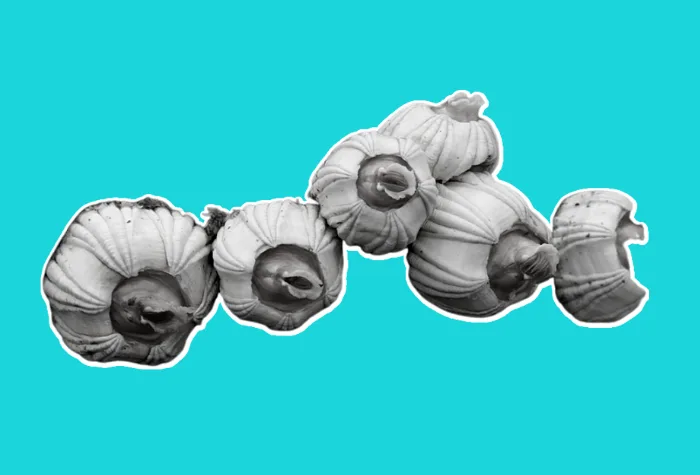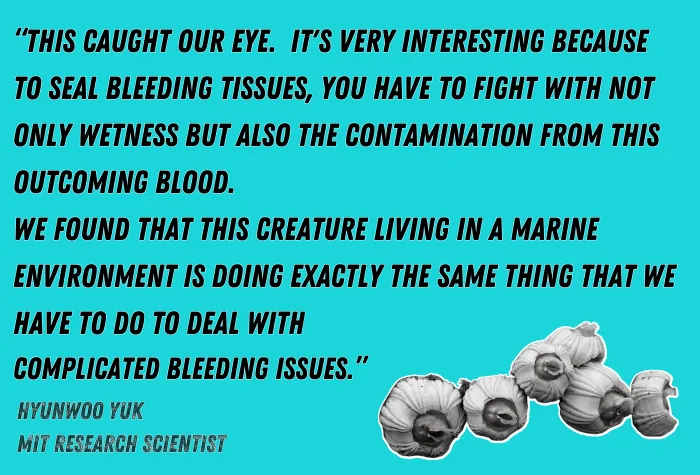
'Barnacle glue' could one day make surgery safer
The glue may one day alleviate an ongoing challenge for emergency responders and surgeons.
Researchers at the Massachusetts Institute of Technology (MIT) have developed a surgical glue that can stop bleeding in humans within seconds, even when those surfaces are covered in blood.
If the technology holds up against further testing, it could be a game-changer. With the ability to seal wounds in about 15 seconds, it could one day become an effective way to treat traumatic injuries and stop bleeding during surgery.
According to the New England Journal of Medicine uncontrolled hemorrhages account for nearly 2 million deaths annually, worldwide. Some are the result of bleeding during surgery, others are due to traumatic injuries.
Blood loss is the leading cause of death following a traumatic injury for members of the military. Within the general population, it is the second leading cause of death due to traumatic injury, the study's authors say.
Part of the problem is that it's difficult to seal wet tissue. Stitches and many of the products currently used to stop bleeding can take minutes to become effective, but in some situations, doctors only have seconds to intervene.
“We are solving an adhesion problem in a challenging environment, which is this wet, dynamic environment of human tissues," says Xuanhe Zhao, a professor of mechanical engineering and civil and environmental engineering at MIT and one of the study's senior authors, said in a statement.
"At the same time, we are trying to translate this fundamental knowledge into real products that can save lives.”
The glue was inspired by the sticky substance barnacles use to cling to rocks, ships, and marine animals. The small crustaceans are able to attach themselves to surfaces that are wet and dirty, factors that typically make creating a seal difficult.

Graphics and images created by Cheryl Santa Maria. Barnacle image source: NOAA/Wikipedia Public domain.
Analysis of barnacle glue reveals the sticky proteins that aid adhesion is suspended in oil that repels moisture and contaminants. The MIT team replicated this in the lab by modifying a glue they had previously developed.
"When the resulting paste is applied to a wet surface such as blood-covered tissue, the oil repels the blood and other substances that may be present, allowing the adhesive microparticles to crosslink and form a tight seal over the wound," reads a statement on MIT News.
"Within 15 to 30 seconds of applying the glue, with gentle pressure applied, the glue sets, and bleeding stops."
Further research is needed to validate the glue's effectiveness in clinical settings - but research done in lab animals suggests the seal remains in place for several weeks, providing time for the wound to heal.
It does not appear to produce significant inflammation, and it can be slowly reabsorbed by the body or removed with a dissolving solution.











